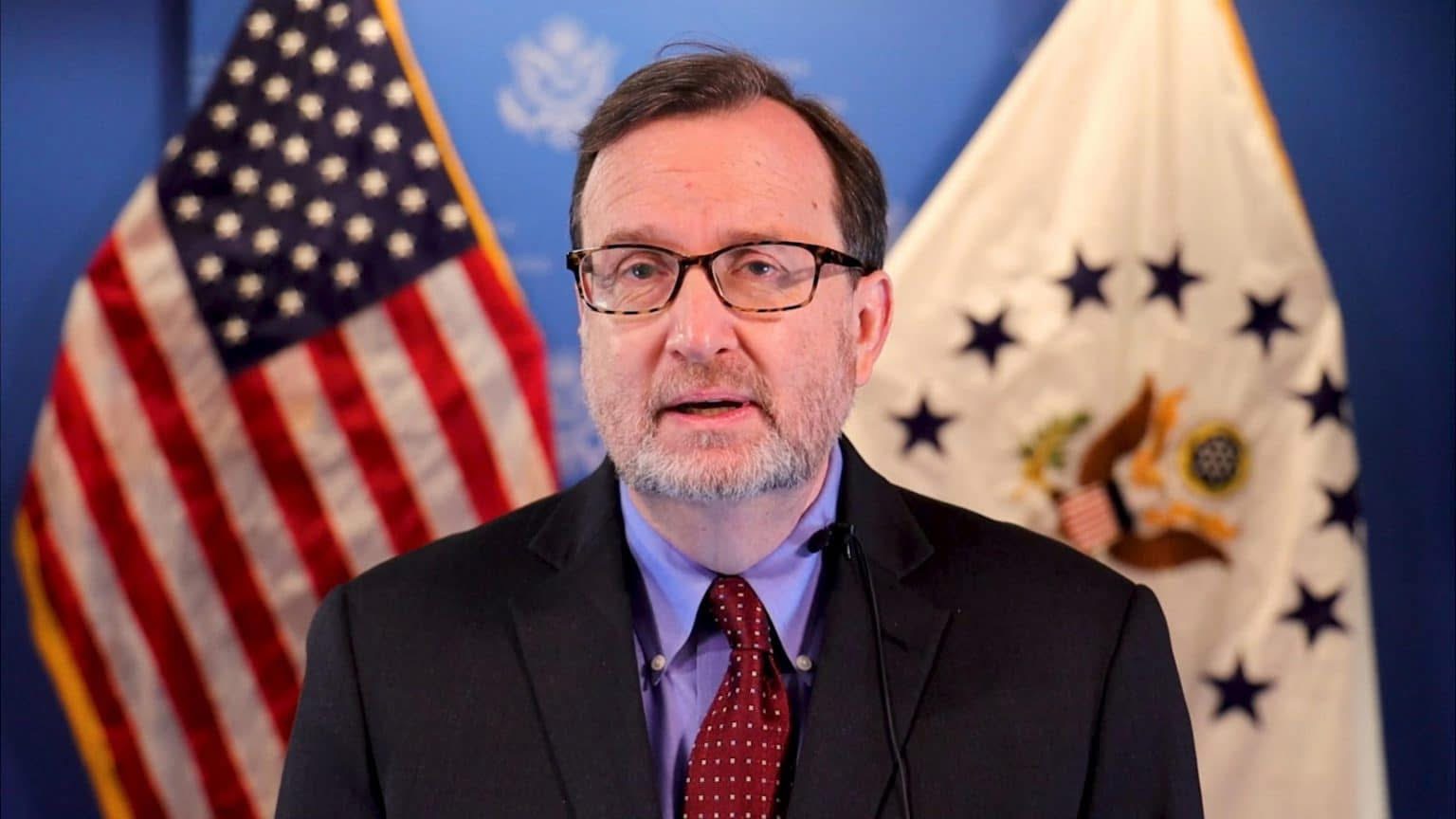The U.S. Ambassador to Nigeria, Richard Mills Jr, has said that there’s no evidence to back allegations that the United States Agency for International Development (USAID) funded the Boko Haram terrorist group in the country.
Mills made the clarification while speaking with newsmen shortly after his presentation at the Nigerian Governors’ Forum (NGF) meeting on Wednesday night in Abuja.
Mills said that Boko Haram had been designated as a Foreign Terrorist Organisation since 2013, assuring that robust monitoring systems were in place to ensure that US assistance reach intended recipients.
He challenged anyone with evidence of misappropriation to present it, saying it will be thoroughly investigated in collaboration with Nigerian partners.
Mills reiterated the U.S. commitment to Nigeria and its efforts to combat Boko Haram’s violence.
“There’s no friend of Nigeria that has been stronger in its condemnation of the violence of Boko Haram and Boko Haram contempt for human life than the United States.
“We labeled Boko Haram since 2013 a foreign terrorist organisation, a designation that was designed to block Boko Haram from carrying out any asset transfers to the united States.
“This allows us to arrest and seize members of Boko Haram, and allows us to cooperate in investigations with the Nigerian government.
“I can assure you, we have policies and procedures in place to ensure that USAID funding, any of our assistance funding, whether that comes from USAID, the Department of Defense, is not diverted to a terrorist group like Boko Haram.
“There is absolutely no evidence that I have seen that has occurred. And certainly if we ever had evidence presented to US that a programme funding was being diverted to Boko Haram, we would immediately investigate along with our Nigerian partners.
“ I just want to be clear that when it comes to Boko Haram, the United States stands with Nigeria in wanting to rid this country of the scourge that the organisation represents,” Mills said.
He also clarified that the US had not cut it financial aids to Nigeria, but put in a 90-day pause.
“In fact, the U.S. Secretary of State, Marco Rubio said this is not about ending foreign assistance to our partners and friends like Nigeria.
“It’s about how to make the assistance more effective and how to make sure that it aligns with U.S. government policies and interests.
“So that’s what this 90-day pause is for in our assistance. But I think many of you have seen, I hope, that there are waivers.
“Waivers for our assistance that’s life-saving, that provides humanitarian, life-saving assistance, whether that’s to HIV patients or to mother and child nutrition needs, to internally displaced people,” Mills said.
On his presentation with the governors, Mills said that he highlighted his vision on the US-Nigeria relationship, over the next four years, focusing on four key priorities.
He listed the priority to include promoting more investment, transparency and accountability; combating corruption and empowering local authorities, advocating for transparency in Nigeria.
Mills added that the US wanted to be more engaged at the sub-national level, at the state and local governing authorities, as it develop its programmes and assistance for Nigeria.
Mills said that he also discussed about the transition of healthcare programmes in Nigeria that were being supported by the US.
“As those programmes are succeeding, as less people have HIV, as polio vaccinations have helped eradicate polio, we want to start transitioning those programmes.
“So, how do we keep our health programmes sustainable and transfer them to the Nigerian government so they can run them and make them more effective?
“We’d like to help develop capacity, the capacity of the states, and the local governing authorities.
“I think this is partly driven by the Supreme Court decision last summer that is going to give the LGAs, if this unfolds the way we think it will, perhaps some authority, more fiscal responsibility.
“We want to help the LGAs transition, take on this new responsibility, and make sure they can work well with the states, based on our experience in the US, where we have a federal system too, where one of our governing principles is, the most effective government is government close to the people,” he said.


